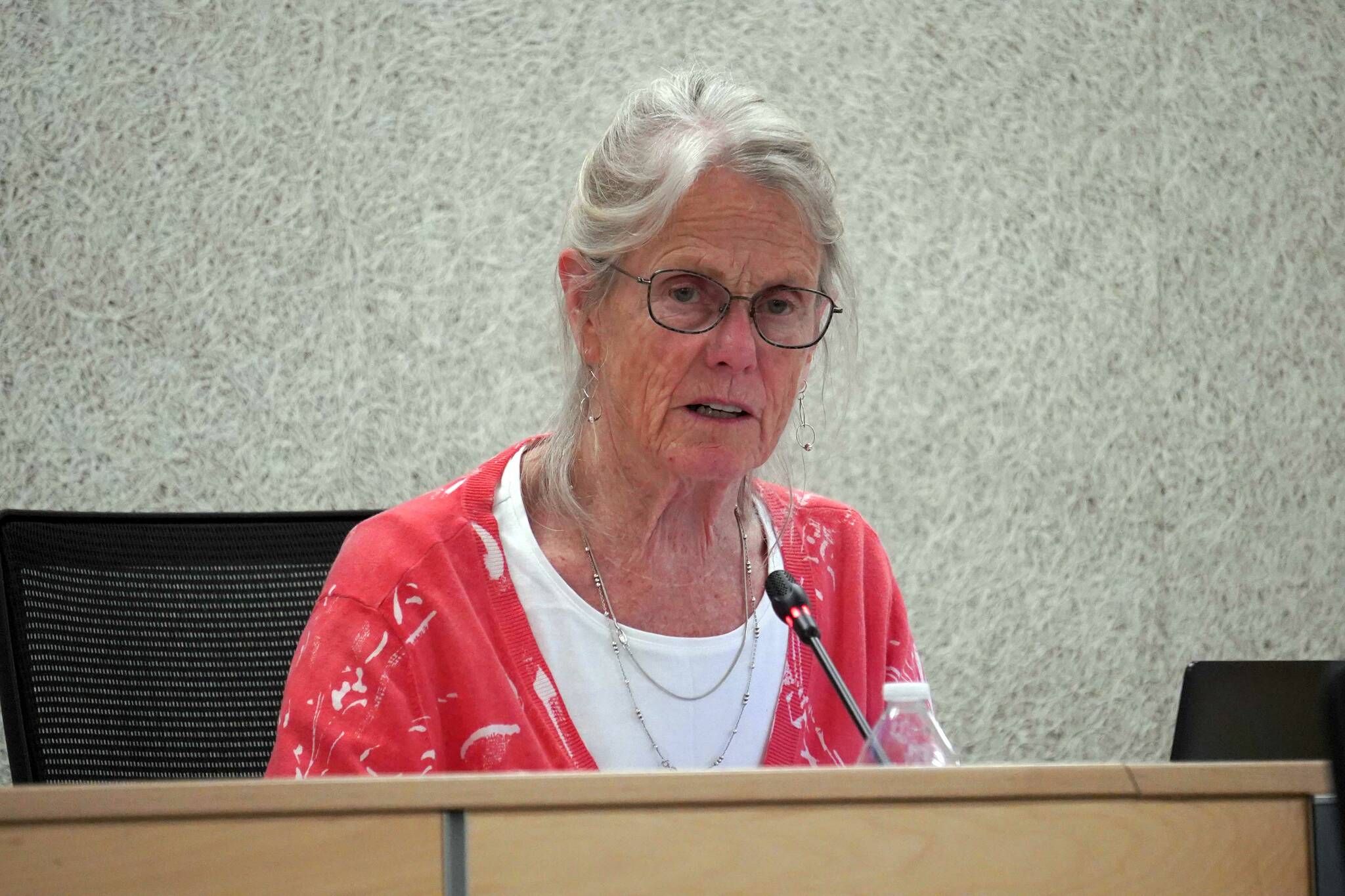The Kenai Peninsula Borough School District will operate under a budget without any cuts during the next school year but will face a deficit of more than $17 million next year. That’s what members of KPBSD’s Board of Education said during a Monday meeting where they approved a revised budget in response to Gov. Mike Dunleavy’s Thursday approval of a one-time increase in school funding.
A budget revision document included in the board’s meeting notes says that Dunleavy signed the state’s operating budget including one-time funds equal to a $680 increase to the base student allocation — the amount of money each district receives from the state per student — as well as one-time funds for student transportation. At the same time, Dunleavy vetoed funding for the Alaska Reads Act and money that would have repaid the district money that the federal government said the state shorted in 2022.
Board President Zen Kelly said during a finance committee meeting on Monday that while the funds that the federal government says the state owes were vetoed, that money remains outstanding and could still materialize sometime in the future.
The additional funding KPBSD will receive includes around $11.4 million in per-student money and $740,000 for student transportation.
Facing a $13.7 million deficit, the board in April approved a budget with cuts to staffing positions, deferred payments for curriculum and equipment, and other impacts to extracurricular activities including closing pools and theaters.
Anticipating the money would be allowed to reach the districts by the governor, the board last month directed staff to begin restoring staff positions that were cut under that budget.
The revision approved by the board on Monday reinstates all budget reductions, but cuts by Dunleavy to money directed at the district and lower-than-anticipating funding from the borough mean that the district will be drawing around $4.7 million from its unassigned fund balance.
The borough’s unassigned fund balance was projected for the next year at $5.8 million, KPBSD Finance Director Liz Hayes told the board during the committee meeting.
“We are taking a very large chunk out of our unassigned fund balance to meet the needs of (fiscal year 2025),” she said. “That clearly demonstrates that we are in deficit spending.”
The district initially budgeted for maximum allowable funding from the Kenai Peninsula Borough at around $58 million. The borough in their budget allocated $56 million, though Hayes said those numbers have also fluctuated somewhat as some monies have been shifted to “in-kind services.”
Kelly said that the borough would likely have provided more funding if a serious need — for example, if Dunleavy had slashed the per-student funding. Because the full $680 increase was secured, that would likely be “a hard sell.”
“They’re going to let us spend down our unallocated fund balance,” Kelly said.
The one-time nature of the increased funding received from the state means that the district will face a similar budget shortfall and repeat conversations about school funding next year.
“Because this is all one-time money coming from the State of Alaska, we cannot rely on it again,” Hayes said. “We’re going to be back in the same cycle of not having funds to support the needs of this district next year. We’ll be looking at cuts again.”
Board member Kelley Cizek asked whether the board should consider cuts this year to reduce the pressure that will be facing the district when budget conversations restart.
“Would it not be prudent to do some cuts in some areas that are not going to affect staffing?” she asked.
Board member Jason Tauriainen said that the majority of the budget is payroll — “there’s not a lot to cut.”
The gaps the district is facing are too large to address without losing people.
“The difference is going to be the state recognizing ‘maybe I don’t like the way education is going, but I still need to have teachers in the building,’” he said. “Let’s get the teachers paid for and let’s work on policy to make sure that as a state we’re doing what the parents want to have happen. That’s what we need to advocate for.”
The district will revise its budget again this winter, but Kelly said that discussions about next year’s budget will start even sooner in October.
“Be ready for a $17-plus million deficit,” Kelly said.
The budget revision was approved unanimously with little discussion during the full meeting that evening.
A full recording of the meetings will be available at the Board of Education’s Board Docs site.

